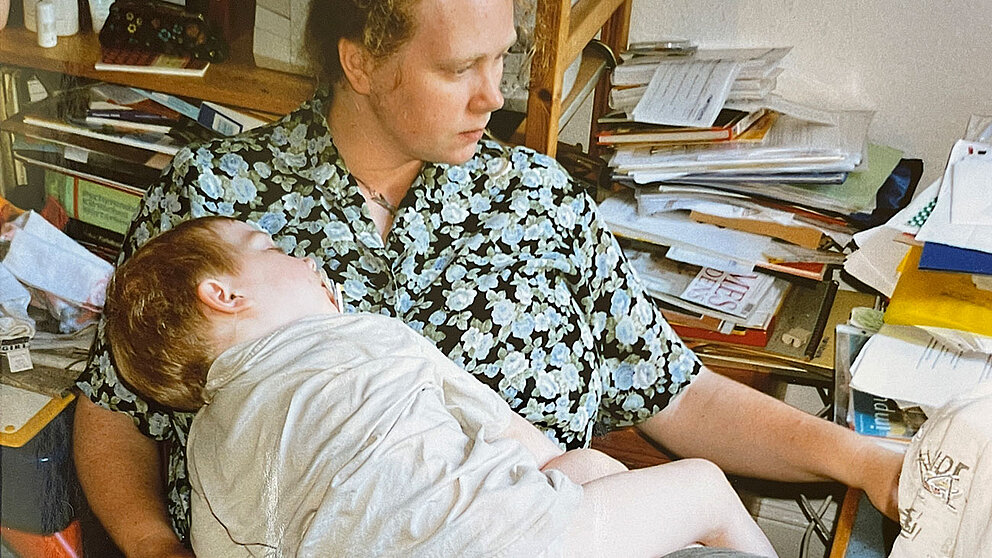Jump to the content
- {{#headlines}}
- {{title}} {{/headlines}}

CATHERINA G. BECKER
Since 2021, neurobiologist Professor Dr Catherina G. Becker has been a Humboldt Professor at TU Dresden. She previously conducted research at ETH Zurich, Switzerland, the University of California, Irvine, United States, at the Centre for Molecular Neurobiology, Hamburg, and the University of Edinburgh, United Kingdom.
This photo was taken more than 20 years ago. The baby is now over six feet tall and is studying computer science. I recently shared it on Twitter in a discussion amongst “academic moms” about how they juggle research, teaching, having a baby at home and, that well-kept secret, all the administration nobody prepares you for when you’re first appointed to a professorship. I don’t just tell my own story to encourage others. I also tell it to the selection and appointment boards I sit on. I believe it’s really important to make clear to them that, even today, six months’ maternity leave can still mean you are unable to publish that one extra paper that would have made all the difference to your funding application. It’s like interest and compound interest. Inequalities in your CV never stop having an impact, on nominations and on appointments.
When my son, the baby in the picture, was born, I was working on my habilitation. I actually wanted to take a few months maternity leave and then use the rest of my habilitation grant to work part time. This was not on my funding agency’s agenda, so I kept working. Ten days after giving birth, I was back at my computer. When my daughter was born four years previously, my husband and I had saved up so that I could take a four-month break. We didn’t get any financial support at the time at all. It is heartening to see that so much has changed. But it is also sobering to note that at professorial level, for example, the situation for women has still not changed enough.
One positive effect of the Corona pandemic is that issues like home-schooling mean that people are talking more openly about the burden borne by parents and especially women. Particularly when it comes to mindset, I often observe that things are out of kilter: It starts with the question of how family duties are divided up, who makes the concessions and who pushes ahead with their career. It is often thought “natural” for the woman to stay at home “to begin with”. I still encounter many cases where women fail to complete their doctorates because they don’t get support from their environment.
I call on all of us to look at things more carefully: Instead of just counting publications when making selection decisions, we can ask about the story a piece of research is telling us. Does it address an interesting problem? What academic potential does it reveal? And be generously supportive, provide references, be encouraging. By which I don’t mean promoting people at random. I want us to ask ourselves whether we are guilty of applying internal censorship and pay close attention to questions like: Who has a vision? Who asks important questions? After all, most of us were lucky enough to meet someone who recognised us, encouraged us and supported us. Taken together, that can help to compensate for that one missing paper.

